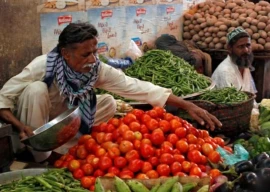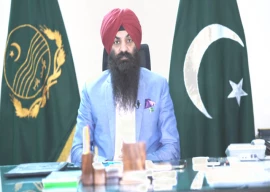
The Seeds of Education, Policy and Legal Awareness (SEPLAA), a non-governmental organisation (NGO), recently signed a memorandum of understanding (MoU) with Chughtai Labs to set up a bone marrow registry. According to the agreement the lab will conduct all relevant tests for BMT procedures.
The MoU is the latest alliance SEPLAA has formed with other organisations. San Mateo Hospital in Italy and the National Institute of Blood Disorder (NIBD), Karachi are among SEPLAA’s other partners in the initiative.
Dr Ayesha Imran, Chughtai Laboratory haematologist, said that with the establishment of the registry patients whose family members were not a match could find a bone marrow donor.
The project was born out of a personal battle. SEPLAA CEO and founder, Ammara Farooq Malik, took on the cause to create awareness regarding genetic blood disorders. Around seven years ago, her daughter was diagnosed with a rare form of enzyme deficiency, related to an innate genetic disorder.
By the age of six, her daughter had had two bone marrow transplants.
“When my daughter was sick, our options were very limited,” Malik recounted. “There was no bone-marrow transplant facility in Lahore and not a reliable one anywhere in Pakistan. We therefore took her to Italy.”
“After her first transplant she was fine but a year later she contracted a virus. At the initial stage it was easily treatable but we couldn’t find the cure in Lahore. As a result she had to go through another transplant,” said Malik while relating her daughter’s story.
While she was in Italy for a follow up, Malik, on a whim, decided to interview the director of the BMT facility Dr Marco Zecca for her organisation’s weekly magazine. “It all started from there. The relationship then blossomed into a collaboration. Dr Zecca agreed to train doctors from Lahore in how to conduct a BMT procedure,” said Malik.
NIBD’s Dr Tahir Shamsi, who is the first doctor who conducted a BMT in Pakistan in 1995, said that there were around 2,500 patients in the Punjab who required a bone marrow transplant annually. “There is a dire need for a BMT centre in the province. Despite being the most populous province in Pakistan, the Punjab does not even have a BMT centre,” he said. Karachi currently has two centres while Islamabad also has one.
“Punjab needs a transplant centre that can treat at least 100 patients a year,” Dr Tahir said. “For those who are born with thalassaemia, a bone marrow transplant is the only solution,” he added, “We hope to conduct out first transplant in December this year.”
NIBD will also send over trainers from Karachi who can train doctors in Lahore.
Published in The Express Tribune, February 12th, 2011.


1723278472-0/BeFunky-collage-(4)1723278472-0-165x106.webp)














COMMENTS (12)
Comments are moderated and generally will be posted if they are on-topic and not abusive.
For more information, please see our Comments FAQ